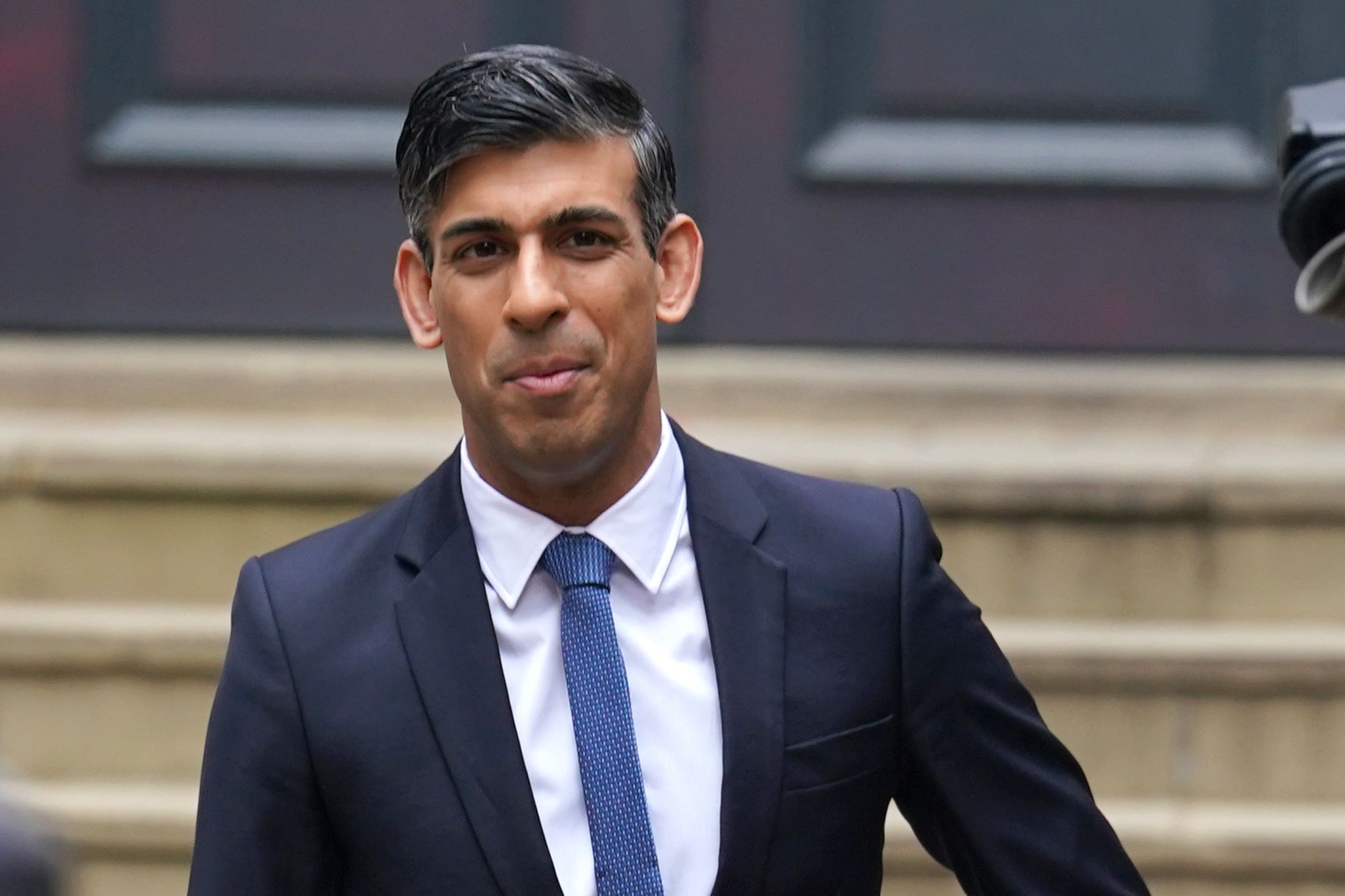Rishi Sunak says immigration is ‘too high’ but says he won’t ‘put a number’ on plan to cut it
But prime minister suggests he wants to cut migration to below the 500,000 level he inherited

Rishi Sunak believes immigration into the UK is “too high” and has said he wants to bring it down to below the level he “inherited”.
The prime minister insisted he would not “put a number” on it but suggested he may cut immigration to below the level it had reached when he entered No 10 – around 500,000 net arrivals a year.
But Downing Street dismissed speculation the half-a-million figure would be set in stone and said the PM was not committed to a specific target. Mr Sunak also declined to commit to cutting numbers by the general election, which is expected next year.
The PM is under pressure after apparently abandoning a Tory manifesto commitment to reduce net migration to 2019 levels, of around 226,000.
The net figure exceeded 500,000 in the year to June 2022, roughly doubling, and new figures due in the coming weeks are widely expected to show a further increase.
Home secretary Suella Braverman has publicly pushed for lower immigration, but Mr Sunak has taken a more pragmatic approach and said more people are required to fill labour shortages in industries such as fruit picking.
“I’m not going to put a precise figure on it but I do want to bring [immigration numbers] down,” the prime minister told BBC News,
“The numbers are too high and we want to bring them down. Now, the numbers last year were impacted by the fact that we welcomed Ukrainian refugees to the UK. Again, that’s something I think we are proud of.”
During a round of interviews at Hiroshima’s Seifukan tea house before attending the G7 summit, Mr Sunak said he is “crystal clear” he wants to reduce net migration.
Pressed by Sky News about whether he would bring numbers below 500,000 by the next election, he said:
“I’m committed to bringing down the levels of migration that I inherited, and I’m relentlessly focused on stopping the boats, that’s one of my five priorities, and we’re doing absolutely everything we can to do that.”
Asked about the 500,000 figure a No 10 spokesperson said Mr Sunak would “take stock” of figures in the coming months but noted that the PM specifically said he would not set a target.
“[The prime minister] said specifically ‘I won’t put a number on it’. We don’t know what the numbers will be next week and it’s right we take stock of those,” Downing Street said.
“But of course, the prime minister speaks to his cabinet colleagues and the home secretary specifically, they’ve worked incredibly closely on the ‘stop the boats’ bill and the work the government’s taking forward to try and tackle illegal immigration.”
The 2019 Conservative manifesto promised that “overall numbers will come down” as the government ends freedom of movement in the wake of Brexit.
But the reduction in immigration, a key issue in the 2016 Brexit referendum, has not materialised.
Despite some polls showing softening public attitudes to immigration compared to previous years, the issue has also moved up the political agenda following an increase in small boats arriving on British shores.
Mr Sunak raised migration with allies at a Council of Europe meeting in Iceland on Tuesday and said he believes he made “another big step forward” with Ursula von der Leyen, president of the European Commission, over the UK potentially working with the bloc’s border force, Frontex.
Labour meanwhile said immigration could need to increase in the "short term" to fill skills gaps in the UK economy.
"What we would see if we had an immigration system that was working properly would be potentially in some areas where there's a short-term need for skills, you could see in the short term actually people who are coming in increasing in number," party chair Anneliese Dodds told Sky News on Friday.
"But in the medium and long-term, a reduction, because we would be training people up in our own country.
"We've not had that unfortunately under the Conservatives. We've got skills shortages and those shortages are not being filled because there's not the domestic upskilling that needs to be taking place."





